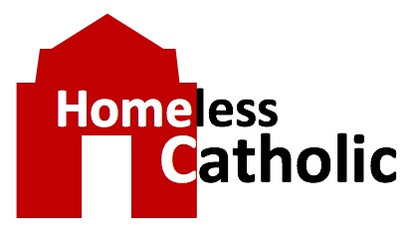Jesus is the clue to resurrection
I really don’t know much about resurrection. What little we know, we know from the resurrection of Jesus.
What I do know is that the end of this life is not an end to the ‘me’ that God initially created, nor is it an end to the ‘me’ that I allowed (or did not allow) God to shape and mold and form throughout the term of my earthly life.
Reflection - Resurrection
http://www.usccb.org/bible/readings/072919.cfm
Exodus 32:15-24, 30-34
John 11:19-27
Resurrection!
Now there’s an event you don’t hear about every day.
Sure, there are the accounts of those who have been technically dead for some period of time and there are those who tell of an out-of-body experience. There are even those who describe their time in heaven. But these are all incidents of resuscitation.
I have to admit that I really don’t know much about resurrection. Martha didn’t know much about resurrection either. When Jesus says to her: “Your brother will rise.” she immediately jumps to the conclusion that he is speaking of the final day of judgment. Jesus quickly explains what he meant though I doubt the explanation was particularly helpful to Martha. Still, the matter of resurrection needs some basic clarification.
Resurrection was a relatively new entry in Jewish theology. In reading the Old Testament, we frequently encounter the term Sheol, a word that has little meaning for us today, but which referred to some speculation about the afterlife in the time of Jesus. A bit of research was required.
According to Herbert C. Brichto, writing in Reform Judaism's Hebrew Union College Annual, the family tomb is the central concept in understanding biblical views of the afterlife. Brichto states that it is "not mere sentimental respect for the physical remains that is...the motivation for the practice, but rather an assumed connection between proper interment and the condition of happiness of the deceased in the afterlife."
The early Israelites apparently believed that the graves of family, or tribe, united into one, and that this unified collectivity is to what the Biblical Hebrew term Sheol refers, the common Grave of humans. Sheol, in this view, was a subterranean underworld where the souls of the dead went after the body died. The notion of immortality and resurrection from the dead were relatively late arrivals in the development of Jewish theology. T
he second temple was built in Jerusalem in the last half of the fifth century B.C. In years subsequent to that construction eternal life and resurrection became part of the common Jewish understanding, though not all accepted these new concepts. At the time of Jesus, the Sadducees, by in large, were opposed to these notions while the Pharisees were more accepting of them. Martha was, apparently more in tune with the latter. However, that still reveals little about resurrection and numerous questions remain.
- Will it be a spiritual or physical resurrection?
- What will we look like?
- Will we have the same body or a new one?
- What will we do?
What little we know, we know from the resurrection of Jesus. Our resurrection will involve more than our spirit or soul. We will have a new body, a glorified body. We will not be confined by time or space. We will give glory to God, though the manner in which we do so is unclear. It is doubtful that we will do this by merely singing or playing harps.
As I said earlier: I really don’t know much about resurrection.
What I do know is that the end of this life is not an end to the ‘me’ that God initially created, nor is it an end to the ‘me’ that I allowed (or did not allow) God to shape and mold and form throughout the term of my earthly life.
William Wordsworth wrote a brief poem expressing his desire to maintain his childhood sense of joy and wonder throughout the entirety of his life. It’s a poem that is often quoted, and has some relevance here.
My heart leaps up when I behold
A rainbow in the sky:
So was it when my life began;
So is it now I am a man;
So be it when I shall grow old,
Or let me die!
The Child is father of the Man;
And I could wish my days to be
Bound each to each by natural piety.
It is on a different level, that his poem speaks to us today; and not just about the beginning days and end days of this mortal life. The resurrected man is fathered by the earthly man. Better still, the resurrected man is fathered by the Father. If we fail to let Our Father be our strength, our fortress, our guide, our inspiration, our source of joy while we are alive on earth, we cannot expect him to be any of those things after death.
